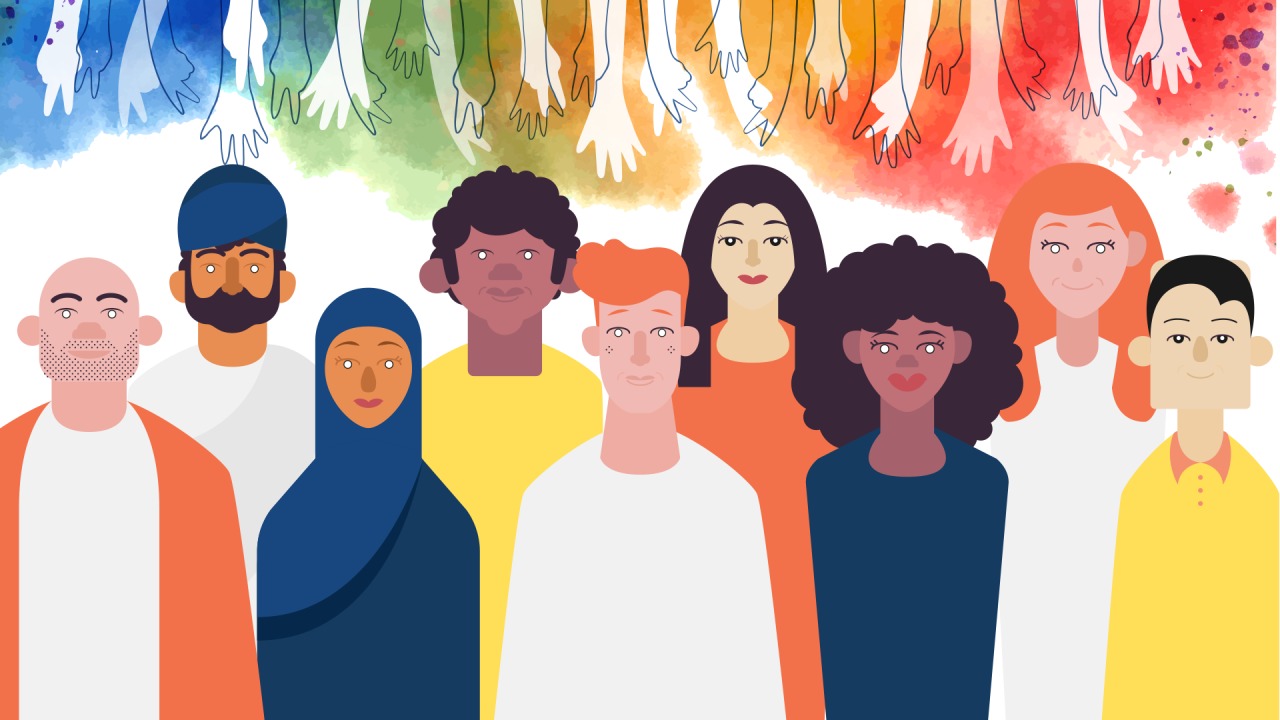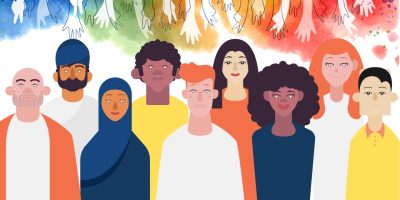Every individual is unique, and every story is an unparalleled journey. Within our diversity lies the strength that makes us irreplaceable. It is through recognizing the uniqueness of each person that we can build an inclusive, equitable, and respectful society—one where every individual has the opportunity to live fully and harmoniously with themselves and others.
Our society is intrinsically shaped by remarkable diversity: people from different ethnicities, cultures, gender identities, sexual orientations, religions, abilities, and socio-economic backgrounds. Each person brings with them unique experiences, dreams, and aspirations that deserve to be acknowledged and respected. However, many individuals from minority groups, such as migrants, LGBTQI+ people, women, those with disabilities, and others, face daily discrimination, prejudice, and social exclusion, which undermine their psychological well-being.
As a psychologist, I am committed to creating a safe, judgment-free space where every person can feel welcomed and respected, free to explore their uniqueness. In this article, I will explore how an inclusive psychological approach can help individuals overcome challenges related to diversity, foster a healthy and grounded identity, and contribute to the creation of a more equitable and welcoming world.
What is Diversity? Why is it Essential for Psychological Well-Being?
Diversity goes beyond visible differences, such as ethnicity, gender, sexual orientation, or disability—it encompasses all the unique experiences each person carries with them. Recognizing and embracing these differences is crucial in building a more empathetic, open, and harmonious society.
However, discrimination and social isolation can have devastating effects on the mental health of those who experience exclusion. Feeling unaccepted or out of place can lead to anxiety, depression, stress, and psychological trauma. For this reason, my commitment as a psychologist is to provide a safe space where individuals can explore their identities without fear of judgment or intolerance.
As outlined in the Code of Ethics for Psychologists, I am committed to non-discrimination based on ethnicity, sexual orientation, gender identity, disability, or any other personal characteristic. Every person deserves to be recognized for who they are and to express their personality freely.
Inclusion: Creating Welcoming Spaces for All
Inclusion goes beyond merely accepting diversity; it’s about creating environments where every individual feels part of a community, respected, and valued for who they are. In an inclusive psychological approach, it is essential to break down the social and cultural barriers that prevent those who are different from living a full and satisfying life.
When a person feels included, their psychological well-being thrives. An environment that embraces cultural, ethnic, sexual, and gender diversity fosters self-confidence, authentic communication, and the development of healthy relationships. This reduces the risk of social isolation and discrimination.
Women, migrants, LGBTQI+ individuals, and ethnic minorities face daily challenges related to gender-based violence, racial discrimination, or homophobia, and these experiences often damage their self-esteem and emotional balance. As a psychologist, my role is to create a safe space where individuals can explore their difficulties without fear of being judged but always supported.
Belonging: The Fundamental Need to Be Accepted
The need for belonging is a fundamental aspect of being human. Every individual desires to feel part of a group, accepted, and loved for who they are. This need for social connection is vital for emotional and psychological well-being.
When a person is excluded because of their diversity, gender identity, sexual orientation, ethnicity, or religion, they may experience a profound sense of loneliness that deeply affects their psychological balance. In these cases, it is crucial to offer psychological support to help individuals overcome the trauma of exclusion and develop a new sense of self-worth and value.
Migrants and ethnic minorities may experience significant cultural isolation, which hinders their integration into society. Targeted psychological support can help them address challenges related to their cultural identity and promote a healthy sense of belonging.
Equity: Ensuring Opportunities for All
Equity doesn’t mean treating everyone the same way; it means recognizing diversity and providing the appropriate opportunities and resources for each individual to reach their full potential. Social inequalities can negatively impact psychological well-being, leading to frustration, low self-esteem, and feelings of inadequacy.
Many social groups, such as women, LGBTQI+ individuals, and ethnic minorities, often encounter difficulties accessing educational, professional, and social opportunities, and these inequalities can have long-lasting effects on their mental health. My role as a psychologist is to help these individuals overcome barriers related to discrimination, offering a safe space where they can explore their experiences without ever feeling judged, but always supported and respected.
How Psychology Can Promote Diversity and Well-Being
Psychological support is a powerful tool for addressing the challenges related to discrimination and marginalization. Here are some ways psychological support can make a difference:
- Processing Trauma Related to Discrimination: Experiences of prejudice and violence can cause deep emotional harm. Psychological support helps individuals overcome these experiences and develop a positive self-image.
- Supporting Cultural Integration: I provide multicultural support, helping migrants and ethnic minorities navigate social and cultural challenges, promoting a strong sense of belonging and integration.
- Empowerment and Self-Acceptance: People facing difficulties related to sexual orientation or gender identity can find in this space an opportunity to grow, accept themselves, and live freely.
- Promoting Equal Opportunities: Offering support to those who face discrimination helps create inclusive spaces where every individual has the same opportunities to thrive.
Conclusion: An Inclusive Psychological Approach for a Welcoming and Equitable Future
Diversity, inclusion, belonging, and equity are the pillars of psychological well-being. Every individual deserves to be recognized for their uniqueness, without fear of being judged or excluded. My commitment is to help each person overcome the challenges associated with discrimination and build a healthy identity rooted in their uniqueness and value.
If you or someone you know is facing difficulties related to social exclusion, violence, discrimination, or isolation, psychological support can truly make a difference. Contact me today to begin a journey that fosters inclusivity, respect, and the celebration of your uniqueness.



